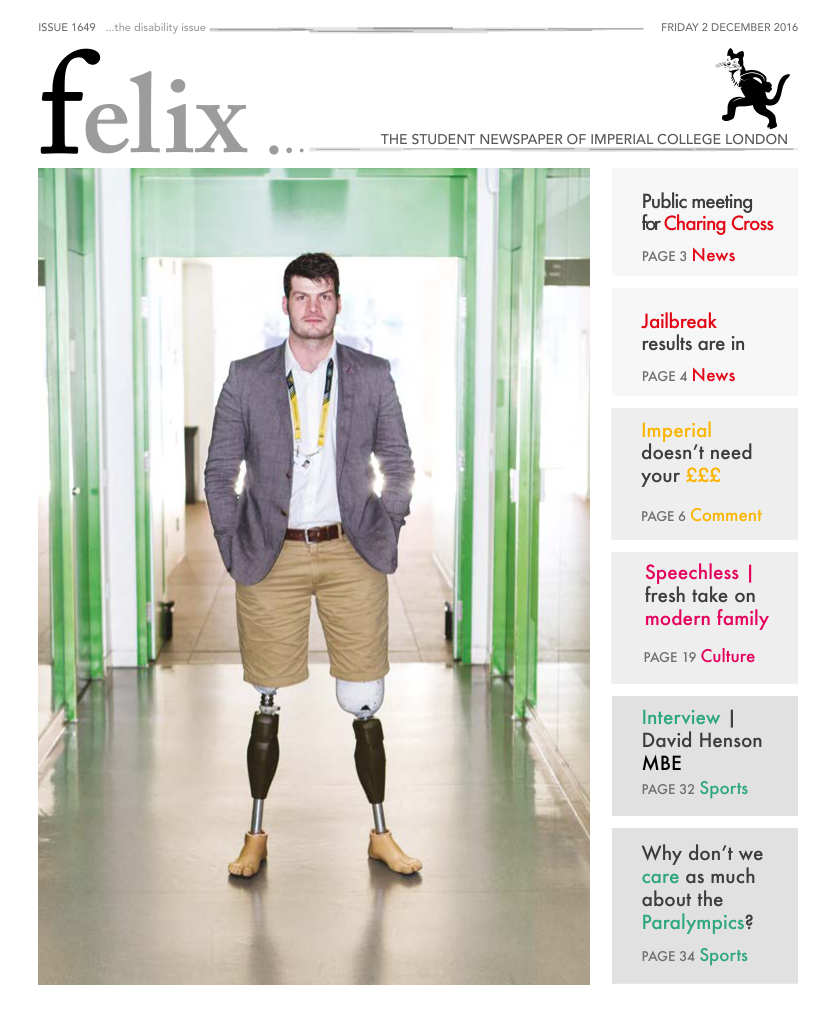Imperial doesn’t need your money
Alexandre Adler explains why we should fight tuition fees at Imperial

A spectre is haunting Imperial: the spectre of tuition fees. Six years ago now, the conservative-led government tripled fees, expanding on a policy started by New Labour. Students around the country rose up in protest, but to no avail. Since then, young Britons have depended on government loans, meaning that they start their professional life in debt. The poorest students have meagre grants, and EU citizens just have to spit out the cash. Overseas students, some coming from less affluent parts of the world, naturally have to pay two to three times the price. One could reasonably expect that Imperial used these new revenues to enhance its student experience, or the volume and quality of its research.
A quick look at the college’s own financial statement dispels this impression immediately. So shall we look at the numbers?
For the year 2014-2015, the last for which such a statement is available as of this article’s writing, Imperial posted a £129 million surplus, or a 13% profit, up from an £85 million surplus in 2014 thanks to the inclusion of a one-off Research & Development government credit. Without it, the surplus for 2015 would stand at a respectable £82.1 million. The really funny thing is that this amount exceeds the total fees paid by British and EU students by £18 million. That’s right, Imperial could offer every one of its EU and British students a free ride and still manage to have a surplus. (Thank god the financial statement also contains a public benefit statement that includes this sentence: “The College offers one of the most generous overall student financial support packages in the UK.”) Alternatively, for the same amount, it could halve the fees paid by overseas students. But College apparently has other priorities, and estimates that it needs this surplus every year to achieve other goals.
If you think that this is explained by greater investment in research, then you may be slightly mistaken – the sum of academic staff salaries, salaries from grants, and the amount spent on research grants and contracts are all completely covered by funding council grants and Imperial’s research income. (In fact, the difference comes in at £50 million of extra income.) No, these surpluses are funnelled into paying for Imperial’s asset expansion policy. Forget Nobel prizes and scholarships – the priority is real estate. As prices in London have continued to grow, the College has acquired more and more buildings, from South Kensington’s post office (£18.2 million), to postgraduate accommodation for its GradPad venture (£98.1 million), to its “Research and Translation Hub” (£32.9 million). This brings the College’s assets to a glorious £1.4 billion. That’s right, Imperial is a billionaire from real estate, just like that orange man you see a lot in the newspaper.
And just like Mr. “Cuckwork Orange” (reusing one of his fans’ favourite expressions), Imperial also has trouble delivering good returns on investments. The College has a large endowment fund of around £113 million, which returned an unimpressive £1.7 million last year. Some of it could maybe be attributed to the profits being re-injected into the fund (the statement doesn’t specify whether or not this is the case), but it clearly is dismal when compared to the performance of the largest funds of the country, like Cambridge’s. It is clear that a large amount of money is immobilised for little purpose.
I could go on dissecting the financial statement for quite some time. But the essential message there is this: Imperial doesn’t need most of the fees it collects to pursue its essential missions. I would love to hear the viewpoint of the financial department in this paper: they can probably explain all of their investment decisions as sound. However, that is not the issue. Instead, we must ask ourselves: is the purpose of the College to amass ever larger assets? Is it normal that an institution whose stated mission is “to achieve enduring excellence in research and education in science, engineering, medicine and business for the benefit of society” spends tens of millions of pounds each year buying property? Or is the income, and especially that sourced from fees incurred by students, supposed to help educate students and support research?
Our contributions are geared towards increasingly expensive real estate and financial schemes, which may look good for donors, but are not as helpful to students as, say, not starting your professional life with two years’ rent worth of debt. The Union should fight this, and each and every one of us should raise her or his voice.







